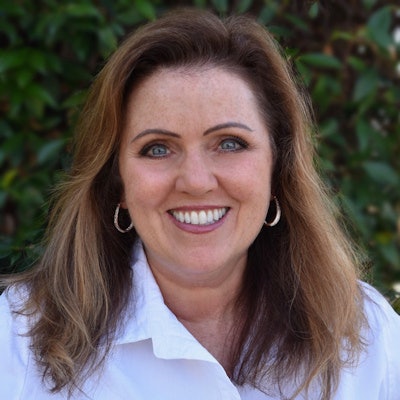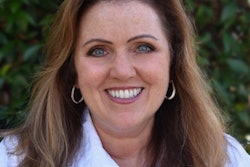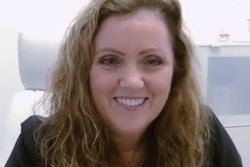
Lynn Atkinson has been working in the dental industry for nearly 40 years, starting her career as a dental assistant in 1982. She then became a registered dental hygienist (RDH) in 1989 and began working with advanced technology, including dental lasers, microscopes, and more. Much of her career has been focused on the use of dental lasers for registered hygienists.
Atkinson is involved in education programs for hygienists and is on the advisory board for Biolase, as well as the auxiliary committee for the Academy of Laser Dentistry. She also speaks and trains doctors, hygienists, and team members on the use of dental lasers along with strategies to incorporate the lasers into their protocols.
We were fortunate to speak with Atkinson about her experience as a dental hygienist and explore where she thinks the future of dental hygiene is heading, especially during the COVID-19 pandemic.
Q: How long have you been an RDH? Can you tell me more about your experience and career in general?
 Lynn Atkinson, RDH.
Lynn Atkinson, RDH.A: I became attracted to the dental profession in high school where I took a course on being a dental assistant. I really enjoyed it and eventually became interested in becoming an RDH. I have now worked as a hygienist for more than 30 years, and I still love my job.
When I first began my career, I started at a practice that had a lot of technology and emphasized the importance of advanced technology across all aspects of the practice. I was introduced to dental lasers through courses at the World Clinical Laser Institute in 1996. Ever since then, I began using dental lasers on a daily basis and kept advancing in my education. I have been involved with the Academy of Laser Dentistry where I achieved my Standard Proficiency Certification in 2013 and the Advanced Proficiency Certification Parts I and II in 2019. I was actually supposed to present for my Advanced Proficiency Part III prior to the pandemic.
Dental lasers are used during 95% of my day, whether it is for laser bacterial reduction, laser assisted periodontal therapy, desensitizing, oral lesions, pain therapy, or whitening treatments. I also work outside of my own practice to train other hygienists on how to use dental lasers.
Q: How has your practice changed during COVID-19?
A: I joined my current practice as the head of the hygiene department after training the practice on the Biolase diode lasers. We are constantly working to bring our infection control and safety procedures to a higher level. We have gone above and beyond with our protocols to ensure patient safety. This means using high-volume evacuation and air purifiers and having all our team members wear N95 face masks and visor face shields. We have also increased dental laser usage to avoid unnecessary aerosol production since dental lasers produce 98% less aerosols than traditional handpieces. Our hygienists are using the Epic H lasers, which produce no aerosols, and our dentists have been using the Waterlase and Epic Pro lasers in conjunction with high-volume evacuation to try to minimize aerosol production as much as possible.
Q: Have patients expressed concerns about coming back to your practice? How do you address those concerns?
A: To make our patients feel more comfortable, we have an office tour where we take them through the practice to show them all the precautions we are taking. We have a hydrogen peroxide foam that we have them rinse with, we do COVID-19 screenings, and we make sure we have appropriate personal protective equipment (PPE). When patients call with concerns or apprehension about their appointment or COVID-19, our team is well-versed in communicating to the patient the precautions that our office is performing to keep our patients and team safe. I believe that the dental office is one of the safest places you can be for procedures.
Q: Some research recently came out on the mouth-COVID-19 connection. Have you looked into the study? Do you have any thoughts on how you think this will affect dental practices?
A: We have always emphasized the oral-systemic link, which shows that inflammatory disease in the mouth, such as periodontal disease, can impact your broader health by making you more susceptible to other illnesses, including COVID-19. The mouth-COVID-19 connection is a clear indication that inflammation and bacteria in your mouth can have a serious impact on the rest of your health. Typically, patients with periodontal inflammation and disease have an underlying condition that contributes to that inflammation. Unfortunately, we have seen an uptick in patients who have been having issues with periodontal disease. Everyone is stressed during these times, and we are seeing the results of this stress affecting the patient's oral health. It is important for dental practices to focus on treating periodontal issues, as they can make patients more susceptible to the coronavirus.
In my career, I have consistently used diode lasers to treat periodontal disease from a hygiene perspective. Dental lasers allow hygienists to selectively remove the diseased tissue without damaging the healthy gum tissue or causing excessive bleeding. Combined with scaling and root planing, hygienists are able to create healthy tissue along with a healthy root surface. When these two methods are combined, we get a much better antibacterial response, faster healing, and a more precise procedure. Dental lasers can be used to decrease the microbial count in aerosols that are associated with some of the tools used during procedures. Our patients are comforted to hear that we are doing everything we can to reduce the number of bacteria and viruses in the aerosols. We know that dental lasers are an excellent tool in treating periodontal disease, and the recent data from the McGuire study published in the Journal of Periodontology demonstrate how the Repair Perio protocol is superior in procedure time and patient-reported outcomes than traditional periodontal treatment.
Q: Do you have any advice for other RDHs on practicing during COVID-19?
A: The best advice I can give is to educate yourself. I know that a lot of hygienists are hesitant to go back to practicing dental hygiene. However, as long as you go back to a dental practice that holds the standard universal precautions and then adds on additional infection control processes, it is possible to return to work safely. I feel safe and I work hard to make sure that my patients feel safe too. I don't think we need to shut everything down. I am able to use my lasers with high-volume evacuation, prerinses, PPE, and air purifiers to establish a safe environment.
My strongest piece of advice is for other hygienists to become educated on dental laser usage. We can offer so much more to our patients and go to a much higher level of care for inflammatory issues along with standard hygiene procedures with the use of dental lasers. In my experience, lasers allow you to manage your patients and their needs and at the same time be more efficient and effective.
There is a plethora of training and education available on dental lasers. I truly believe advanced technology is the future of dental hygiene, making now the perfect time to further your education around it.
The comments and observations expressed herein do not necessarily reflect the opinions of DrBicuspid.com, nor should they be construed as an endorsement or admonishment of any particular idea, vendor, or organization.



















